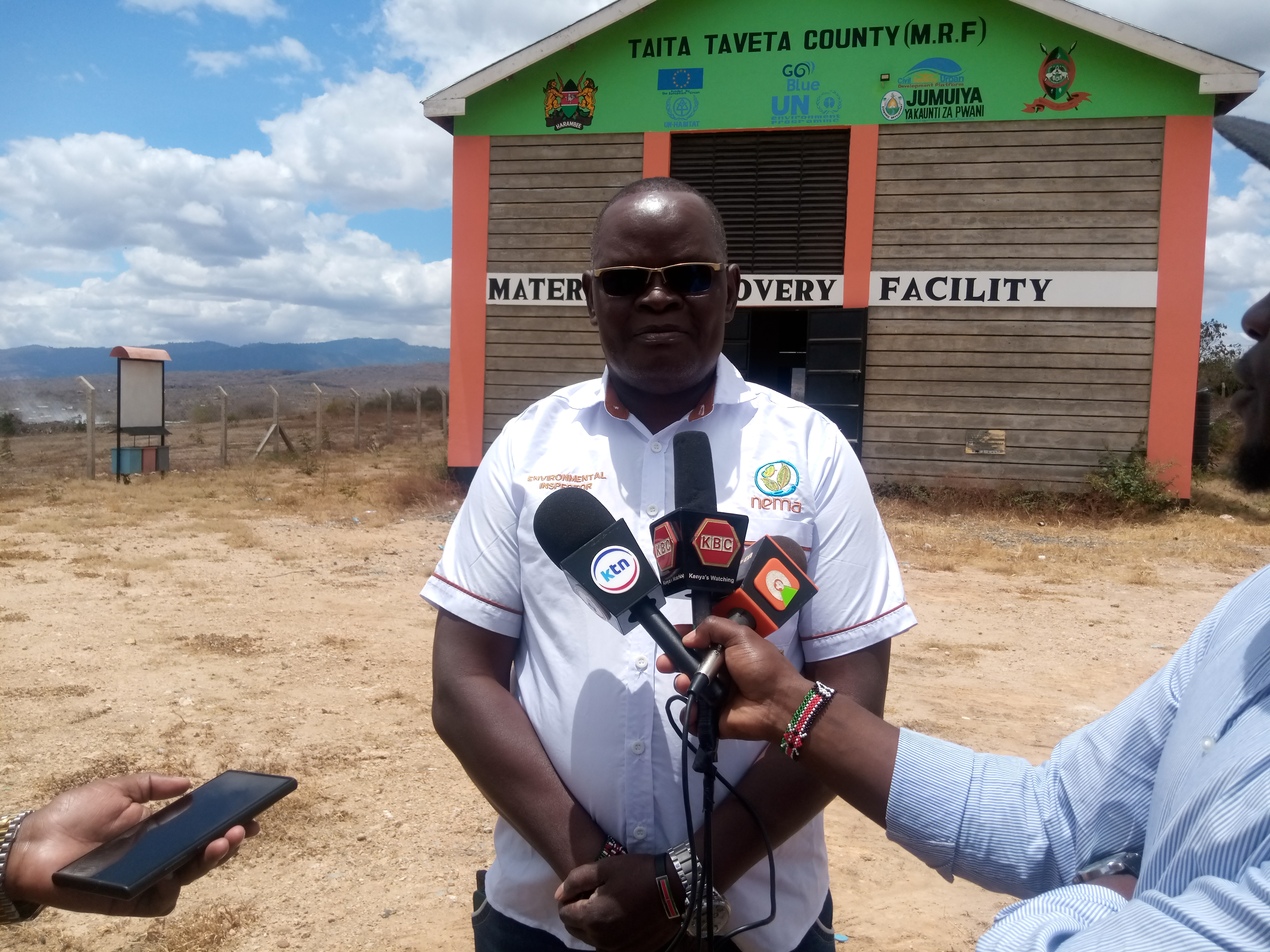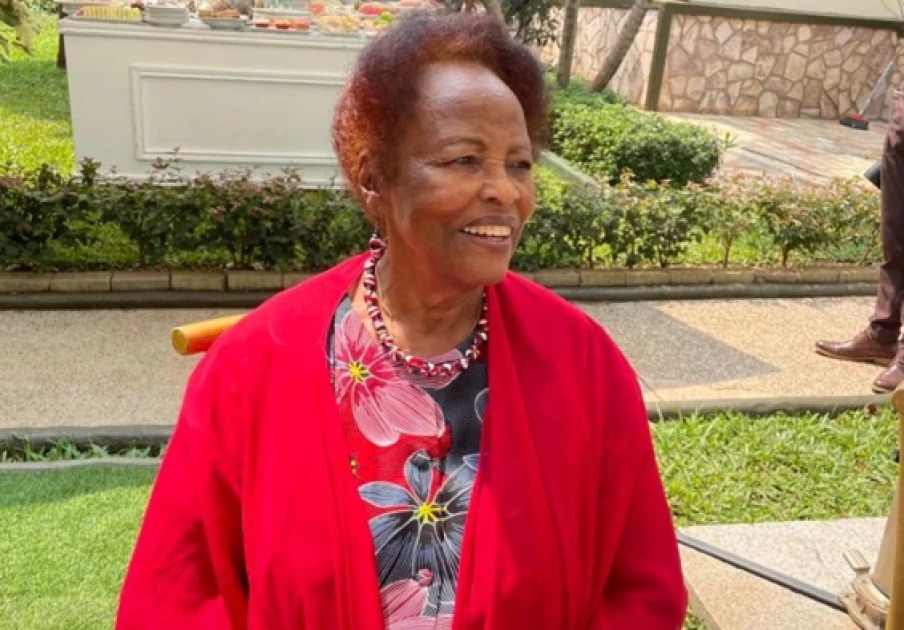
 Nema Taita Taveta county director George Oyoo addressing journalists during a site visit at the Chakareli Material Recovery Facility, September 12, 2025. /KNA
Nema Taita Taveta county director George Oyoo addressing journalists during a site visit at the Chakareli Material Recovery Facility, September 12, 2025. /KNAThe National Environment Management Authority is advocating for the integration of waste management education into the Competency-Based Education (CBE) to instil responsible practices among learners from an early age.
Taita Taveta county Nema director, George Oyoo, said the initiative would nurture a culture of environmental responsibility in future generations while supporting ongoing efforts to manage waste sustainably.
Speaking during a site visit to the Material Recovery Facility (MRF) in Chakareli—established with support from the European Union through UN-Habitat and the county government—Oyoo stressed that waste separation should begin at the source.
He added that awareness campaigns should also target women, youth and other groups to help them view waste as a source of economic opportunity.
“For waste management to succeed across the country and for counties to replicate the MRF projects, children must be taught from an early stage that separation starts at home. We also want to sensitise communities so they can see waste as a means of wealth creation,” he said.
Oyoo praised the Chakareli MRF, noting it has helped reduce illegal dumping sites, which pose serious environmental and health risks.
He explained that both the national and county governments have shifted from prosecuting offenders to providing sustainable solutions.
“Previously, we took people to court, but we realised sustainability comes through awareness and providing facilities for proper disposal. The MRF has been effective in reducing illegal dumpsites,” he said.
He further urged residents to embrace sustainable practices by sorting waste into plastics, biodegradable materials and glass.
He added that treating waste as a resource could enable households to generate income in the same way as farming.




















